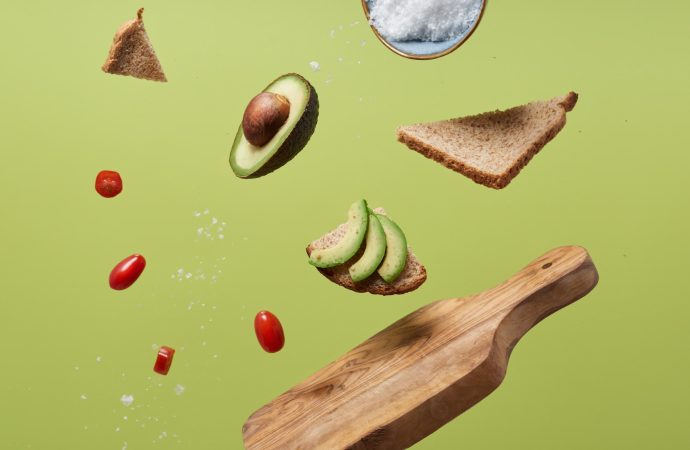Introduction: Your Daily Calorie Quota Guide Allow me to introduce myself – Chef Michel Leblanc. With over two decades of culinary experience and a passion for promoting a healthier lifestyle through food, I’m thrilled to embark on this journey with you. In this article, we’ll dive into the world of calorie counting, helping you
Introduction: Your Daily Calorie Quota Guide
Allow me to introduce myself – Chef Michel Leblanc. With over two decades of culinary experience and a passion for promoting a healthier lifestyle through food, I’m thrilled to embark on this journey with you. In this article, we’ll dive into the world of calorie counting, helping you make informed Calorie Quota that will pave the way for a healthier you.
Understanding the Importance of Daily Caloric Intake
The Fundamentals of Caloric Balance
Before we delve into the specifics, it’s crucial to grasp the concept of caloric balance. To maintain your current weight, the calories you consume must equal the calories you burn. Any excess leads to weight gain, while a deficit results in weight loss. Let’s break this down further.
Identifying Your Basal Metabolic Rate (BMR)
Your Basal Metabolic Rate (BMR) is the number of calories your body needs at rest to maintain basic functions like breathing and circulation. We’ll guide you through a simple formula to calculate your BMR accurately.

Photo by Jana Ohajdova on Unsplash
Factors Influencing Daily Caloric Needs
Your daily calorie requirements aren’t solely determined by your BMR. Lifestyle, physical activity, and goals play a significant role. We’ll discuss how these factors impact your daily caloric intake.
Calculating Your Daily Caloric Quota
Step 1: Determine Your BMR
Let’s get practical. We’ll walk you through the BMR calculation and provide an example to illustrate the process.
Step 2: Factor in Your Activity Level
Activity level matters! Learn how to adjust your daily caloric intake based on your daily physical activities, whether you’re sedentary or highly active.
Step 3: Setting Realistic Goals
Unrealistic goals can lead to disappointment. Discover how to set achievable objectives for weight maintenance, loss, or gain.
Eating Smart: Making Informed Choices
Quality vs. Quantity
It’s not just about the number of calories; it’s about where they come from. Explore the importance of food quality and how it impacts your health.
Balancing Macronutrients
Understanding the role of carbohydrates, proteins, and fats in your diet is key. We’ll provide practical tips on achieving a balanced diet.
Introducing Chef Leblanc’s Smart Recipe Selections
Delicious Recipes for Your Caloric Goals
As a chef committed to healthy living, I’ve curated a selection of mouthwatering recipes that cater to various caloric needs. Explore these culinary delights to make eating smart a delight.
In Conclusion: Your Path to a Healthier Lifestyle
In this article, we’ve demystified the concept of daily caloric intake. Armed with this knowledge, you can now make informed choices to achieve your health and wellness goals. Remember, it’s not just about counting calories; it’s about eating smart.
Knowledge Source: Chef Michel Leblanc
Chef Michel Leblanc is a renowned culinary expert with a career spanning over 20 years. He holds a degree in Culinary Arts and has worked in top-rated restaurants worldwide. Chef Leblanc is dedicated to promoting healthy eating through his culinary creations and educational initiatives.
Key Points Summary Table
| Section | Key Points |
|---|---|
| Fundamentals of Caloric Balance | – Calories in vs. calories out |
| Identifying Your BMR (Basal Metabolic Rate) | – BMR calculation formula<br>- Example |
| Factors Influencing Daily Caloric Needs | – Lifestyle, physical activity, and goals impact |
| Calculating Your Daily Caloric Quota | – BMR determination<br>- Adjusting for activity<br>- Goal setting |
| Quality vs. Quantity | – Importance of food quality |
| Balancing Macronutrients | – Role of carbs, proteins, and fats |
| Chef Leblanc’s Smart Recipe Selections | – Curated recipes for various caloric needs |
Comparative Table: Quality vs. Quantity
| Aspect | Quality | Quantity |
|---|---|---|
| Definition | Emphasizes nutritional value and health | Focuses on calorie count and portion size |
| Impact on Health | Promotes overall well-being | May not consider nutritional value |
| Examples | Whole grains, lean proteins, veggies | Highly processed foods, sugary snacks |
| Long-term benefits | Better health, sustained energy | May lead to weight fluctuations |
In conclusion, understanding your daily calorie quota is a fundamental step towards a healthier lifestyle. Chef Michel Leblanc and I have walked you through the essential aspects of caloric balance, BMR calculation, and the impact of various factors on your daily caloric needs. By focusing on quality over quantity, you can make choices that support your long-term well-being. Remember, it’s not just about numbers; it’s about eating smart and savoring every bite on your path to a healthier you.

















Leave a Comment
Your email address will not be published. Required fields are marked with *